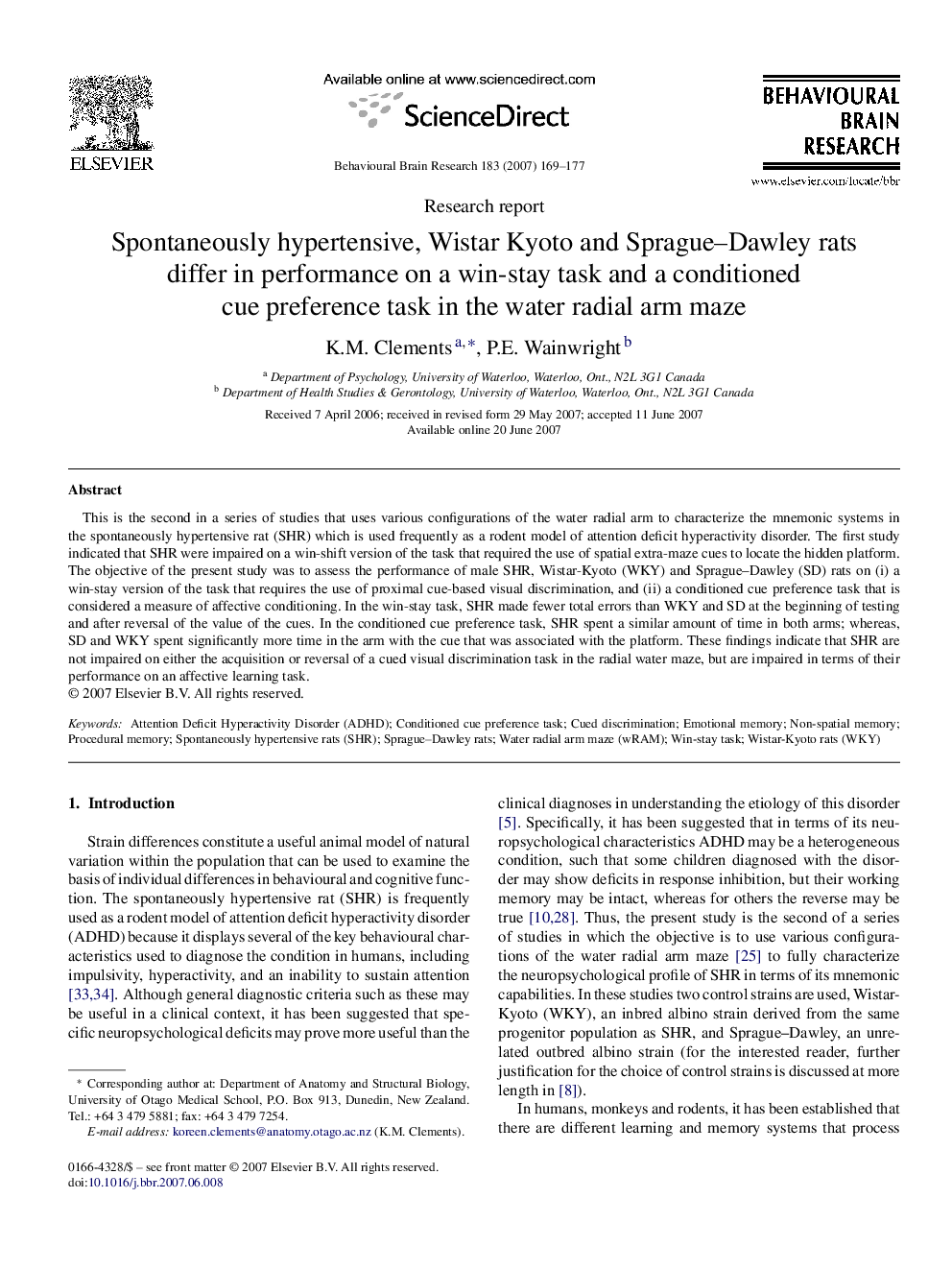| کد مقاله | کد نشریه | سال انتشار | مقاله انگلیسی | نسخه تمام متن |
|---|---|---|---|---|
| 4315307 | 1290072 | 2007 | 9 صفحه PDF | دانلود رایگان |

This is the second in a series of studies that uses various configurations of the water radial arm to characterize the mnemonic systems in the spontaneously hypertensive rat (SHR) which is used frequently as a rodent model of attention deficit hyperactivity disorder. The first study indicated that SHR were impaired on a win-shift version of the task that required the use of spatial extra-maze cues to locate the hidden platform. The objective of the present study was to assess the performance of male SHR, Wistar-Kyoto (WKY) and Sprague–Dawley (SD) rats on (i) a win-stay version of the task that requires the use of proximal cue-based visual discrimination, and (ii) a conditioned cue preference task that is considered a measure of affective conditioning. In the win-stay task, SHR made fewer total errors than WKY and SD at the beginning of testing and after reversal of the value of the cues. In the conditioned cue preference task, SHR spent a similar amount of time in both arms; whereas, SD and WKY spent significantly more time in the arm with the cue that was associated with the platform. These findings indicate that SHR are not impaired on either the acquisition or reversal of a cued visual discrimination task in the radial water maze, but are impaired in terms of their performance on an affective learning task.
Journal: Behavioural Brain Research - Volume 183, Issue 2, 2 November 2007, Pages 169–177